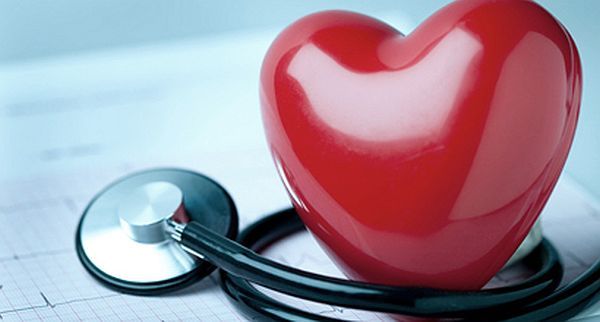"Fuel Your Heart and Power Your Life" is the World Heart Federation's message for this year's World Heart Day, which is observed on September 29 every year to raise awareness about cardiovascular diseases (CVDs), which include heart disease and stroke.
The CVDs, along with cancer, diabetes and chronic lung disease, form the 4 major non-communicable diseases (NCDs) and together account for 82% of the 38 million deaths caused by NCDs every year.
Over 17.5 Million Deaths Due to CVDS Every Year
CVDs are responsible for most NCD deaths, killing 17.5 million people (7.4 million from heart attacks and 6.7 million from strokes) every year, followed by cancers (8.2 million), respiratory diseases (4 million), and diabetes (1.5 million). Yet at least 80% of premature deaths from CVDs can be avoided by controlling tobacco consumption, unhealthy diet, physical inactivity & harmful use of alcohol.
 |
In an exclusive media webinar organised by CNS and the International Union Against Tuberculosis and Lung Disease (The Union), Professor (Dr) Rishi Sethi from the Department of Cardiology at King George's Medical University (KGMU), shared the findings of the biggest nationwide blood pressure (BP) survey organised by The Cardiology Society of India on September 21, 2015, in which the BPs of around 0.15 million respondents were measured simultaneously at 700 sites in 100 Indian cities spanning 24 states over an 8 hour period.
The initial findings (based on a sample of 74,520) are startling indeed. 33% of the respondents were found to be hypertensive, out of whom 25% were between 31-45 years and 13% between 18-30 years. So it is no longer an old age disease. Also 62% of people with hypertension (HTN) were unaware of their condition, which points to a lack of awareness and good screening tests.
Despite medications, 42% of hypertensive people had uncontrolled blood pressure, putting them at high risk for heart disease. Thus the findings reveal that 1/3 of Indians above 18 years have hypertension; 2/3 of those with high BP are not aware of their disease; and in nearly 1/2 of the known cases, HTN is not well controlled.
Dr Sethi called for aggressive cardio-preventive measures, saying that an optimal blood pressure of less then 120/80 mm Hg and HbA1C more than 7% of blood glucose level should be maintained through lifestyle approaches.
Other emerging risk factors are obesity, unhealthy diet, physical inactivity and stress/depression. Dr Sethi advised that, "The median BMI for adult populations should be in the range of 21-23 kg/m2. Elimination of trans-fat and replacement of saturated with polyunsaturated vegetable oils, along with moderate exercise for 30 minutes 5 days a week, will lower coronary heart disease risk. Stress and depression should be avoided as they almost double the risk of coronary artery disease in previously healthy adults."
 |
"CVDs are a huge barrier to human and economic development. Yet, in the past CVD has been neglected by the development agenda. We cannot reduce NCDs without substantially reducing CVD. A specific target in SDGs is to reduce by 33% premature NCD mortality by 2030. The NCD targets and SDGs offer an unprecedented opportunity mandate for countries to tackle CVD," she said.
On September 22, 2016, on the margins of the UN General Assembly, the WHO and CDC (US Centres for Disease Control), along with other partners, launched 'The Global Hearts,' a new initiative to scale up prevention and control of CVD, especially in developing countries.
The initiative will initially be rolled out in 12 countries (Barbados, Colombia, Ethiopia, India, Iran, Jordan, Nepal, Nigeria, Philippines, Tajikistan, Thailand and Uganda) to help them implement its 3 technical packages:
• SHAKE - a new set of evidence-backed policy options and examples to support governments to lower population salt consumption. If fully implemented in every country, SHAKE could save millions of lives per year and dramatically reduce the burden of NCDs on health systems.
• HEARTS - This technical package gives countries the tools to incorporate cardiovascular disease management best practices at the primary health care level to reduce cardiovascular risk factors such as high blood pressure and high blood cholesterol. HEARTS aims to prevent heart attacks and strokes through equitable access to ongoing, standardized and quality care.
• MPOWER - Tobacco kills around 6 million people every year. MPOWER is a set of six practical, affordable and achievable measures to help countries implement specific provisions of the WHO Framework Convention on Tobacco Control. This new push will help scale up efforts by many countries that are already implementing the MPOWER package of demand-reduction interventions for effective tobacco control.
WHO Director General Dr Margaret Chan said that this initiative can save millions of lives through ramping up proven measures to prevent CVDs in communities and countries, including tobacco taxation, reducing salt in food, detecting and treating people at high risk and strengthening primary health care level services.
World Heart Day 2016 - Power Your Life
Let us all take our heart seriously and fuel it properly to drive our life, instead of burning it out. The heart is at the heart of our health and needs the care it deserves.
Just a few simple steps such as eating more healthily, cutting down on alcohol and stopping smoking can improve your heart health and your overall wellbeing.
So this World Heart Day, let's make sure we all take action to keep our hearts charged and make a lasting difference to our health.
Shobha Shukla is the Managing Editor of CNS (Citizen News Service). Follow her on Twitter: @CNS_Health. Shared under Creative Commons (CC) Attribution License.


